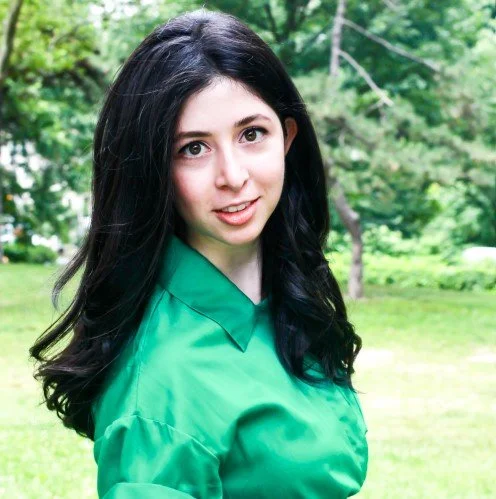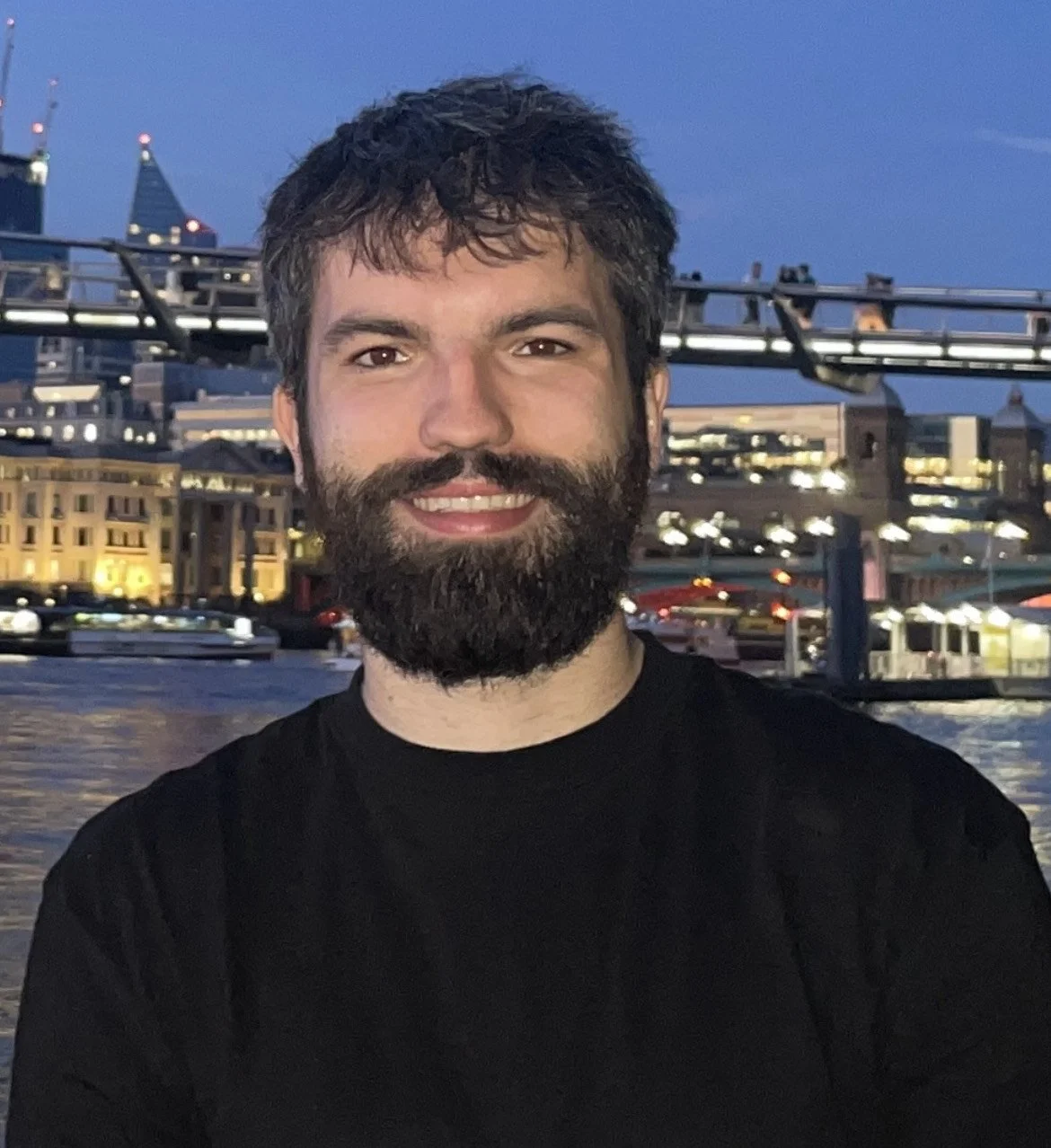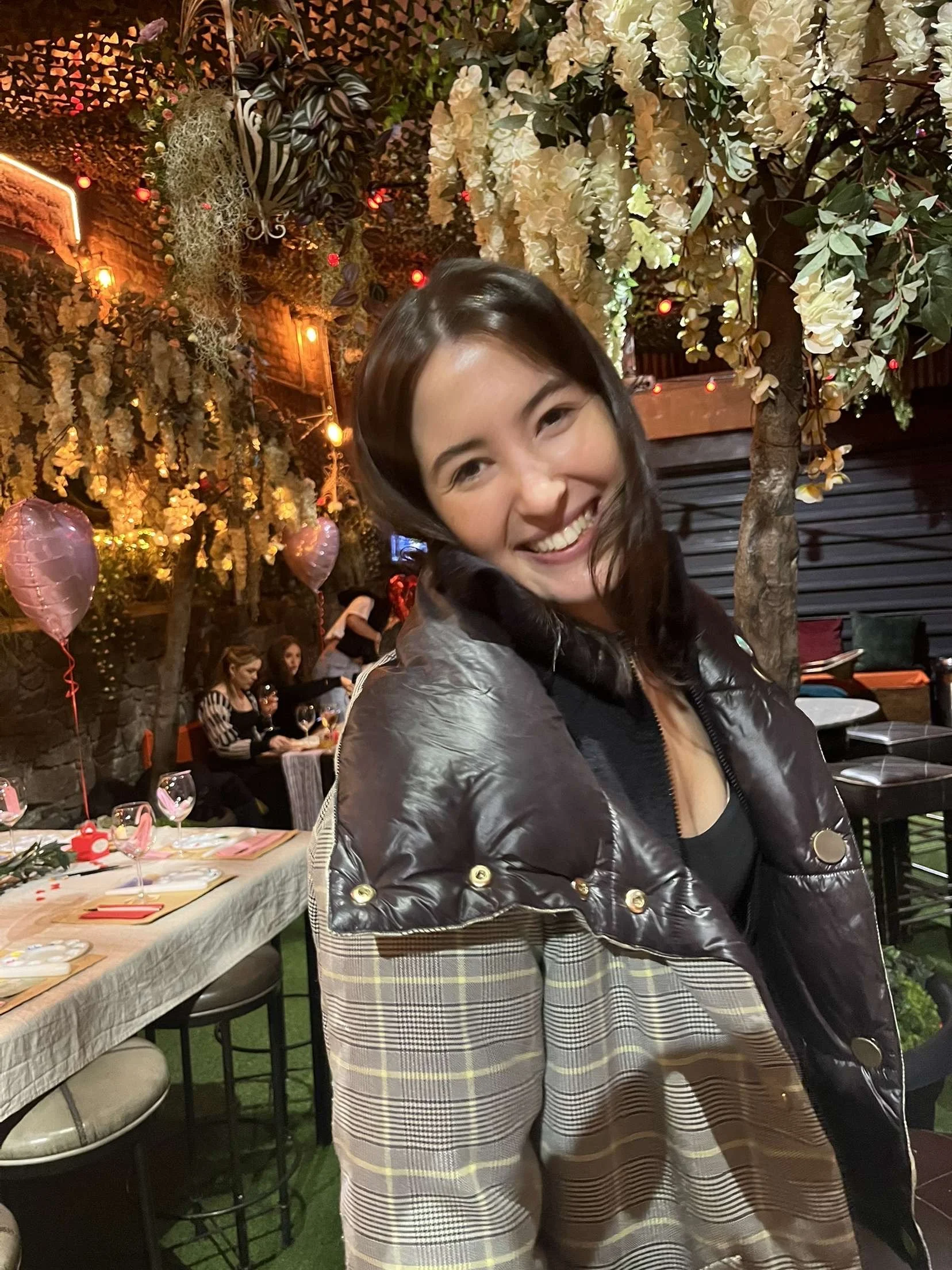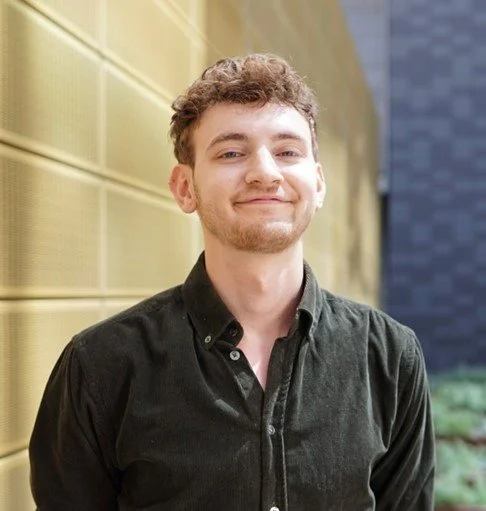Yuval Elani - Group Leader
Yuval Elani is a UKRI Future Leaders Fellow and Reader (Associate Professor) in Chemical Engineering at Imperial College London. He previously held EPSRC and Imperial Research Fellowships in Chemistry at Imperial and studied Natural Sciences at the University of Cambridge.
Yuval is a leading expert in synthetic cells, microfluidics, BioHybrids, synthetic biology, lipid nanoparticle design, and membrane engineering. Since earning his PhD in 2015, Yuval has secured numerous large-scale grants to conduct both frontier and applied research in these areas and has developed a broad portfolio of collaborations with clinicians and industry (Syngenta, GSK, P&G,AstraZeneca, Neobe). He has won multiple prizes and medals for his research breakthroughs, including the Parliamentary and Scientific Committee Roscoe Medal, Rita & John Cornforth Medal, Felix Franks Medal for Biotechnology, IChemE Nicklin Medal, and the RSC Harrison-Meldola Memorial Prize. His work has been recognised by the World Economic Forum, which selected him to be part of their Young Scientist Community (50 under 40 worldwide) as well as by the Lister Institute for Preventive Medicine, where he is a Fellow. Yuval is co-director of the Membrane Biophysics Platform and co-founder and member of the executive of fabriCELL. He sits on various executive boards, including the Institute of Chemical Biology and its CDT, the Imperial Centre for Engineering Biology, and the Leverhulme Centre for Cellular Bionics. Yuval’s full CV can be found here.
Andrew Stannard - Postdoc
Andrew obtained his PhD from the School of Physics & Astronomy at the University of Nottingham, where he subsequently held postdoctoral research fellowships, working in the fields of 2D self-assembled nanostructured systems and ultra-high-resolution scanning probe microscopy. He had a career break as a secondary school science teacher via the Researchers in Schools programme, before returning to academia in the Department of Physics at King’s College London, shifting focus to the nanomechanical characterisation of biophysical systems. Andrew is now in the Department of Chemistry at Imperial College London, researching the roles of topology and homology in DNA-DNA interactions.
Marcus Fletcher - Postdoc
Marcus focuses on the study of bottom-up synthetic cell systems with a particular emphasis on understanding cell membrane phenomena like membrane transport regulation and sub-cellular membrane architecture. He completed a BA and MSci in Natural Sciences (Physics) at the University of Cambridge, followed by a PhD in the group of Prof Ulrich Keyser at the same university. In his PhD, he worked on studying the ion transport properties of cellular membrane models by combining DNA nanotechnology, optofluidics and mathematical modelling. Now, he is developing new microfluidic methods to controllably design and study artificial cell architectures with precisely defined compositions. These efforts will form part of a collaboration between the Elani and Ellis groups at Imperial and the Murray group in Caltech to build a synthetic nucleus and study the rules governing eukaryotic cell structure. The tools developed will also be used to explore the large multivariate parameter spaces which control fundamental biological processes such as protein/membrane interactions and protein synthesis.
Jyoti Prakash Gurung - Postdoc
Jyoti obtained his Ph.D. from the School of Biotechnology and Biomolecular Sciences at the University of New South Wales, Australia, in 2024 under the supervision of Dr. Matthew Baker. His doctoral research encompassed genetic engineering, microfluidics techniques, and optogenetic control of motile bacteria. At the Elani Lab, Jyoti continues his post doctoral research work on engineering liposome-attached motile bacteria for targeted delivery applications. Beyond his scientific pursuits, he enjoys outdoor activities such as gardening, hiking and playing sports, particularly football.
Shameem Golestaneh - PhD student
I started my microfluidics and biophysics journey during my Masters in Physics degree at the University of Warwick, looking at Chlamydomonas responses under external stimuli before moving on to utilising microfluidics to differentiate malarial cells from background healthy cells in my final year. I will now be developing a lab-on-chip to profile metabolic degradation as part of the 1+3 Mres + PhD ICB CDT program at Imperial College London, which is co-funded by EPSRC and Syngenta.
Oliver Gonzales-Carvajal - PhD Student
I’ve recently graduated with an MChem degree from the University of York. My final year masters project was on developing azide-tagged ribitols to be used as metabolic labelling probes to investigate various neuromuscular diseases, including muscular dystrophy. Now, under the supervision of Dr Fets (at the MRC), Dr Elani and Dr Baron I have started my PhD at the MRC and Imperial College as part of the SAMURII scheme. My PhD involves measuring intratumor heterogeneity at the single-cell level using microfluidic lab-on-chip devices that interface with high-resolution mass spectrometry. In my spare time, I enjoy playing rugby, scuba diving and going on walks.
Yu Cheng - PhD Student
Yu Cheng is a CDT student sponsored by Syngenta. Under the co-supervision of Dr. Yuval Elani, Dr. Oscar Ces and Dr. James Hindley, his PhD project aims to build membrane/cell/tissue models for targeted discovery in the agri sector, involving applications of 3D bioprinting, microfluidics and membrane engineering. Yu Cheng studied chemistry at Fudan University (China) between 2014 and 2018 and graduated with an honours award in the National Top Talent Undergraduate Training program. During his MRes in chemical biology at Imperial College London (UK) in 2020, Yu Cheng mainly worked on microfluidic vesicle formation and membrane reconstitution. Yu Cheng is a fan of football and dota2 in his free time
Nina O’Toole - PhD student
Nina is a PhD student working between the Yuval Elani and Phil Jones’ lab in UCL. She works on exploiting optical trapping technologies for synthetic cell design and construction.
Lucy Sifeng Chen - PhD Student
I am an EPSRC funded PhD student co-supervised by Francesca Ceroni, and am working on artificial cells to synthesise and deliver anti-cancer peptides at tumour sites. I previously completed my Bachelors in Biochemistry and Masters in Systems and Synthetic Biology, both at Imperial College. In the summer following my Bachelors degree, I led the wet lab division of the Imperial team competing in the first annual iDEC (International Directed Evolution Competition) with our project on dual transcriptional regulators for quorum sensing, supervised by Prof. Mark Isalan. Outside of my studies, I like to write, play piano, and bake!
Zihan Zhang - PhD Student
I completed my MRes degree in chemical biology at Imperial College London in 2020. Now I am doing my PhD under the co-supervision of Prof. Oscar Ces and Dr. Yuval Elani. My MRes project was to fabricate vesicles with microfluidic methods, which aroused my interest in the design and application of artificial cells. My PhD project aims to develop a new microfluidic platform to create stimuli-responsive liposome formulation libraries and enable high-throughput production. I enjoy hiking and video games, and I am also an amateur singer.
Joshua Christopher - PhD Student
Josh is an EPSRC funded PhD student working on bacterial biohybrids. His project is focused on combining advances in liposome nanotechnology and synthetic biology to engineer a bacterial biohybrid system for targeted delivery of cancer therapeutics. He began his studies at the University of Oxford, completing an undergraduate master’s degree in biochemistry during which he wrote a research dissertation on generating SimCells, genome-free bacterial cells designed to be used as a novel platform for synthetic biology. Following this, he joined Oxford SimCell, a biotech start-up, where he worked on optimising the SimCell platform further. He went on to complete an MRes in Systems and Synthetic Biology at Imperial College London, designing novel immune receptors using denoising diffusion probabilistic models, before joining the Elani group to start his PhD. Outside of the lab, he hosts comedy nights and performs as a musical comedian.
Bradley Diggines - PhD student
Bradley is a first year PhD student on the ICB CDT 1+3 program. His research aims to develop automated systems to synthesise, functionalise and characterise lipid-based nanoparticles in high throughput. In collaboration with AstraZeneca, Bradley will also screen novel particle formulations for the delivery of cargo to key cells in their drug development pipeline. During his MRes in the Elani Group, he was awarded the ICB prize for establishing a robotic-microfluidic system for the automated synthesis and expulsion of large nanoparticle libraries. Previously, Bradley completed a MEng in Materials Science at the University of Sheffield, for which he was awarded the Mappin Medal. During this period, he worked on the automated analysis of kinetoplast DNA using AFM (Pyne Lab) and undertook an internship at McGill University, engineering shape-morphing structures using 3D printed polymers.
Harry Lowe - PhD student
I completed my MChem (Hons) in Chemistry with Biological and Medicinal Chemistry at the University of York in 2023. My master's research project at Brigham Women's Hospital (Boston, US) was focused on developing new pharmaceutical compounds for novel targets to treat severe mental health conditions. I am currently in the first year of my PhD on the ICB CDT 1+3 years MRes + PhD, co-supervised by Nazila Kamaly, Yuval Elani and Oscar Ces, working to develop a cell-free system for protein synthesis via a microfluidic cell-on-a-chip platform.
Xuemin Chen - PhD Student
Xuemin is a PhD student funded by a Departmental Scholarship under the supervision of Yuval. Her project focuses on synthetic cell engineering. She completed her undergraduate and master’s studies at China Agricultural University, where her research primarily revolved around protein assembly, constructing functional protein hydrogels and lattices for applications in drug delivery and catalysis. She is interested in developing intricate nano- and micro-architectures, aiming to design macromolecular assemblies with unique properties and functions. In her spare time, she enjoys playing badminton and hiking.
Rohan Sekhri - PhD student
I am an EPSRC student funded by the Centre for Doctoral Training in Chemical Biology working on synthetic tissues. My project is focused on 3D printing synthetic tissues for patterned interactions with cellular populations. I completed my undergraduate degree in Chemistry from Durham University before undertaking an MRes in Biological and Physical Chemistry at Imperial. My MRes research focussed on protein aggregation in Parkinson’s disease, leveraging molecular dynamics simulations and microbiology techniques to gain insight into phase-separated aggregation pathways. Outside of my studies, I enjoy cooking, reading and playing sports.
Julia Breed - MCSA PhD student
Julia is an MCSA-funded PhD student working on exosome-based intercellular communication in synthetic cells. She began her studies at Northeastern University in Boston, earning a B.S. in Cell & Molecular Biology and an M.S. in Biotechnology. During integrated research placements at MIT and Bluebird Bio, she focused on next-generation sequencing and lentiviral vector optimization. She then went on to join Beam Therapeutics, where she helped to develop novel viral vectors for in vivo delivery of base editors and other nucleic acid cargos. Outside of the lab, she enjoys skiing, hiking, and scuba diving.
Tom Vasudeva - PhD student
I recently completed an MSci degree in Physics at the University of Bristol. My final-year project focused on using microfluidic systems to generate aqueous droplets for ice nucleation studies. Due to an interest in biological sciences, I undertook a biophysics module, as well as continuing to read about current research in interdisciplinary science. This has prompted me to apply my skills in microfluidics to a synthetic biology setting. Under the supervision of Dr Yuval Elani, I will be working on the design and production of artificial cells using a microfluidic platform.
Outside of my studies, I enjoy climbing, scuba diving and reading
Ayelet Kalfus - PhD Student
A Marshall Scholar, Ayelet is exploring AI-driven computational protein design for synthetic cells. Drawn to interdisciplinary study, Ayelet majored in physics at Yale, pursuing research experiences across physics, biology, and computer science. With the Isaacs Lab, a synthetic biology lab at Yale, she investigated AI for the design of synthetic genomes. Ayelet has a deep appreciation for the arts—especially literature and visual arts—and believes in the interconnectedness of art and science.
Neha Karim
I am a first-year PhD student and research assistant in the Bidmos Group at the Department of Infectious Disease. Previously, I completed an MRes in Biomedical Research, specialising in bacterial pathogenesis and infection. During that time, I explored how a transcriptional factor activates the Type VI secretion system in Pseudomonas aeruginosa, and contributed to the development of monoclonal antibody therapies targeting Neisseria infections. I have a strong interest in translational vaccinology, which has led me to pursue a PhD focused on engineering a synthetic platform for glycoconjugate vaccine production, expression, and delivery under the joined supervision of Dr Fadil Bidmos, Dr Yuval Elani, Dr Vanessa Terra, and Professor Paul Langford. When I am not in the lab, I enjoy reading, painting, and spending time with friends.
Josh Sandy
Josh is a Biochemistry (MSci) graduate from the University of Birmingham; his final year project focused on developing and optimising a targeted protein degradation system as a tool to study and elucidate the function of uncharacterised proteins. During his tenure in industry as a research associate, Josh acquired an extensive background in genetic engineering across wide array of microorganisms, covering both prokaryotes and eukaryotes. Primarily, this work focused on engineering strains for bioprocess applications to produce commercially valuable proteins and chemicals. Currently, Josh is a PhD student funded by a departmental scholarship under the supervision of Yuval. His project aims to enhance the genetic complexity of synthetic cells through the development of input, process, and response modules – ultimately enabling synthetic cells to respond to an array of both biological and bio-orthogonal stimuli in a controlled and reliable manner. Outside of the lab, Josh enjoys kayaking, dodgeball, BJJ, and is a massive F1 fan
I am currently in the first year of the ICB CDT 1+3 MRes + PhD programme at Imperial College London. My project focuses on developing a microfluidic “Micro-Foundry” to engineer multi-compartment lipid nanoparticles as next-generation carriers for biomolecular therapies, with the aim of overcoming long-standing challenges in targeted delivery, endosomal escape, and multi-stage drug release. I have graduated in Pharmaceutical and Industrial Chemistry from the University of Limerick, Ireland, where I completed an eight-month placement at Eli Lilly Kinsale. There, I worked on palladium scavenging strategies for breast cancer drug synthesis, reprocessing out-of-specification batches through crystallisation, and troubleshooting process chemistry challenges, earning a site recognition award for my contributions. My final year thesis focused on designing electro-responsive polymer systems for controlled drug release, further strengthening my interest in smart materials for healthcare applications. Outside of research, I enjoy cooking for friends, yoga and Pilates.
Chelsea Houston
Chelsea is a PhD student co-supervised by Dr. Elani and Dr. Rouse, where her research focuses on engineering lipid nanoparticles for the targeted delivery of mRNA. She studied Biochemistry at Royal Holloway, University of London, and went on to complete an MRes in Cancer Biology at Imperial College London. Building on this academic foundation, she gained industry experience as a Research Associate in the Novel Therapeutics team at UCB Biosciences, which further shaped her interest in developing innovative delivery systems. These combined experiences now drive her long-term aspiration to contribute to therapies with meaningful patient impact
Wenqing (Lucy) Ma
Lucy completed her MEng degree in Chemical Engineering at Imperial College London. She is now pursuing a PhD funded by EPSRC under a co-supervision scheme with Prof. Rongjun Chen and Dr. Yuval Elani. Her research focuses on the design of stimuli-responsive synthetic vesicles for targeted cell delivery and controlled release, with the goal of advancing tumour-targeted drug delivery strategies. Outside the lab, Lucy is passionate about travelling, dancing, and exploring food from around the world.
Manuel Bibrowski
I am a visiting student in Biochemistry from Heidelberg University, currently completing my master’s dissertation in the Elani Lab. My research focuses on engineering novel lipid nanoparticles using a combination of in-cell and cell-free protein expression, chemical synthesis, and microfluidic techniques. Before joining the Elani Lab, I gained research experience at the Max Planck Institute for Medical Research in Heidelberg, the Novo Nordisk Foundation Centre for Protein Research in Copenhagen, and Institut Curie in Paris. Along the way, I’ve worked on projects spanning protein engineering, medicinal chemistry, synthetic biology and RNA nanotechnology. Outside the lab, I enjoy playing the piano, latin and ballroom dancing and swimming.
MRes, MEng, and MSc students
Eylul Akgok
PhD and Postdoc Alumni
Divesh Baxani. Destination: (Microfluidics Innovation Hub)
Claudia Contini (BBSRC Fellow and Lecturer, Life Sciences, Imperial College)
Greta Zubaite (Lightcast Discovery)
Federica Raguseo (PDRA - The Crick)
Hannah Sleath (Aspect Capital)
Carolina Monck (VC Investor, Episode 1)
Ion Ioannou (PDRA - Imperial Chemistry)
Ignacio Gispert Contamina (Group Manager - Imperial Chemistry)
Zalike Keskin Erdogan (Lecturer - Ege University, Turkey)
Colin Pilkington (PDRA - Kings College London)
Roberto Di Blasi (Founder, Stealth Biotech)
Karen Zhu (Lifescience Dynamics)
Hannah Cooke (Portal Biotech)
Matt Allen (PDRA - University of Munster)
Aileen Cooney (PDRA - Imperial Chemistry)
Juan Ivars Miñana (Life Sciences Consultant, Eradigm)























